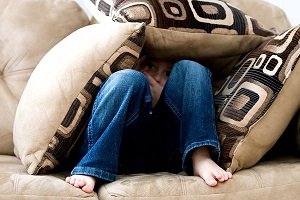How to Get Rid of Agitated Depression? - Surviving and Treating Agitation
Tweet------------a state of clinical depression in which the person exhibits irritability and restlessness-----------------
This term is applied to depressive disorders in which agitation is prominent. Agitation occur in many severe depressive disorders but in agitated depression, it is particularly severe. Agitated depression is seen more commonly among the middle aged and elderly than among younger patients. However, there is no reason to suppose that agitated depression differs in other impotent ways from the other depressive disorders.
Definition of Agitated Depression
A major depression with agitation that may be driven by hypomania.
Although many people experience symptoms such as feeling slowed down and lethargic when they are depressed, others may experience just the opposite. They may feel anger, agitation and irritability. This is what "agitated depression" refers to.
Agitated depression was once called melancholia agitata. It is now also known as mixed mania.
Agitation occurs in many severe depressive disorders, but in agitated depression it is particularly severe. There is no reason to suppose that agitated depression differs in other important respects from other depressive disorders.
Diagnostic Criteria for Agitated Depression
- Major Depressive Episode
- At least two of the following symptoms:
- Motor agitation
- Psychic agitation or intense inner tension
- Racing or crowded thoughts
Agitated depression meets the criteria for major depressive episode but not those of a mixed bipolar disorder according to the DSM-III-R.
Symptoms of agitated depression include:
- Extreme irritability, like snapping at friends and family, or being annoyed at small things
- Outbursts of complaining or shouting
- Racing thoughts and incessant talking
- Restlessness and pacinganger
- Agitation
- Hand-wringing and nail-biting
- Pulling at clothes or hair
- Picking at skin
- Fidgeting
Clinical Forms of Agitated Depression
- Psychotic agitated depression
Proposed name: Melancholia - Non-psychotic agitated depression
Meets the RDC criteria - Excites anxious depression
Provisional name: Psychic agitation and racing or crowded thoughts.
Agitated depression in Bipolar I Disorder: Research
The occurrence of agitated depression in bipolar I disorder is not rare and has significant prognostic and therapeutic implications. Whether the co-occurrence of a major depressive syndrome with one or two of these symptomatic clusters makes up a "mixed state" remains unclear.
Agitated Major Depressive Disorder
At least 2 of the following manifestations of psychomotor retardation (not more subjective anxiety) are required for several days during the current episode
- Pacing
- Handwringing
- Unable to sit still
- Pulling or rubbing on hair, skin, or clothing
- Outbursts of complaining or shouting
- Talks on and on, or can't seem to stop talking
Treatment in Severe Agitated - Anxious Depression
Agitated depression, also known as mixed state or dysphoric mania, can be treated in several ways. There are four main methods in which to survive agitated depression: medications, psychotherapy, medication combined with psychotherapy, and electroconvulsive therapy (ECT). Selective serotonin reuptake inhibitors (SSRIs) have shown efficacy in the treatment of agitated-anxious depression.


Sometimes crying or laughing
are the only options left,
and laughing feels better right now.

Current Issue
 Self Help Leaflets Take the help of our self help leaflets or booklets. |
 The DG Magazine All about living with depression |


















